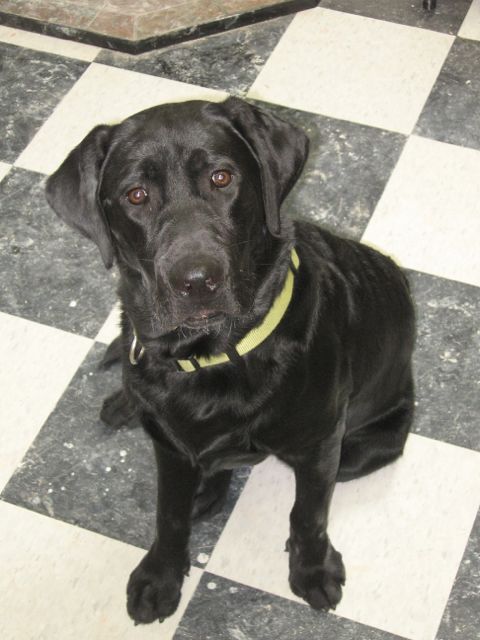
My English black lab is named “Kai.” The name comes from “kairos” which is a Greek term for “the time in which God lives.” There are two kinds of time in theological terms. One kind of time is chronos time – chronos – like chronology – the clicking of seconds and minutes and hours of human clock time. This kind of time in which humans live on earth, based on the movement of the planets, did not become much of a big deal until the early 1800′s when time became “money” in our western culture as factories became prevalent and clocking-in for work became the way people were managed and – soon – the way humanity was judged by itself.
Kairos time, on the other hand, is not linear like chronos time is. Kairos time does not move from second to second to minute to hour to day and to year in a line moving forward in one direction with the past lost and the future unknown. Kairos time is less like a line on a page with notches moving relentlessly in one direction. Kairos time is not an advancement of a commodity which is lost as it moves forward. Kairos time is a way of being.
Kairos time, that “time” in which God lives is not linear but is three-dimensional. Kairos time is a time of constant love, playfulness and creativity. kairos time is not gained or lost. It is not used up or spent. Kairos time is a way of being rather than the being itself. If chronos time is seen as a line with notches in it then Kairos time is “laughter at a dinner table” or “two fiends sharing their lives with each other” or “sex” or “one’s favorite food.”
God lives in the midst of three persons, as three persons – and God’s only experience of “alone” was very brief and still, was in the context of a simultaneous experience of not being alone. God lives in a constant kaleidoscope of love and playfulness and joyful self-expression and a bit of silliness (take , for example, the platypus, the blue-footed booboe or a puppy chasing his tail!).
I named my silly, goofie, loving lab “Kai” because he draws me out of chronos time and into Kairos time. He draws me out of a time of post-industrial revolution time-cards and day-timers and into the silly, loving playfulness to which we are all called every moment and into which we may dive with reckless abandon if we give ourselves the counter-cultural permission to do so


